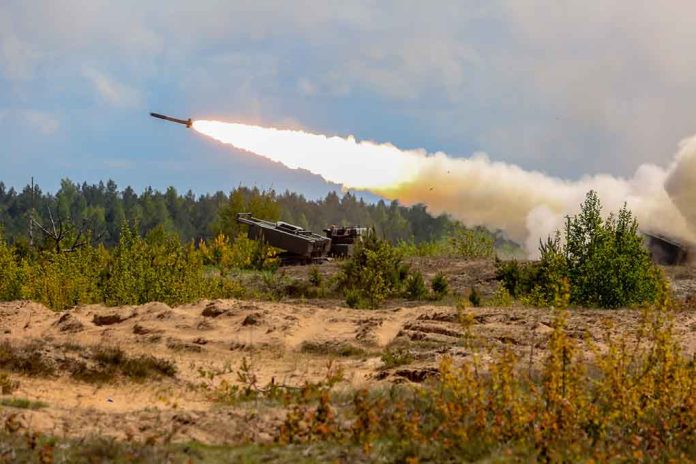
In a dramatic escalation of tensions, Israeli ground forces have entered southern Lebanon, a move that evokes memories of the 2006 war with Hezbollah.
At a Glance
- Israel has launched a ground invasion targeting Hezbollah.
- The invasion involves “limited, localized and targeted” raids.
- Lebanese civilians warned against traveling south across the Litani river.
- Hezbollah denies the presence of Israeli troops and vows preparedness.
- Over a million people have been displaced and the conflict has resulted in over 1,000 deaths in Lebanon.
Israeli Ground Forces Enter Southern Lebanon Amid Rising Tensions
In a significant offensive not seen since the 2006 war, Israeli ground forces have entered southern Lebanon, aiming to cripple Hezbollah’s military infrastructure. This operation follows several weeks of Israel’s intensive aerial bombardments designed to neutralize rocket attacks originating from Hezbollah positions in northern Israel.
The Israel Defense Forces (IDF) stated the operation involves “limited, localized and targeted ground raids.” Approximately 25 villages have been notified to evacuate north, and Lebanese civilians have been warned not to use vehicles to travel south across the Litani river. The IDF aims to dismantle Hezbollah “infrastructure,” which poses an “immediate threat” to Israeli communities.
Hezbollah’s Response and the Regional Implications
Hezbollah has denied the presence of Israeli troops on Lebanese soil, declaring their fighters “ready for a direct confrontation.” Despite this, no direct clashes have been reported between the two sides. Israeli Defence Minister Yoav Gallant has indicated that airstrikes in Lebanon will continue, signaling the potential for a protracted conflict.
Lebanese Prime Minister Najib Mikati described the ongoing situation as “one of the most dangerous phases” in the country’s history, emphasizing the dire consequences for Lebanese civilians. Around one million people have been displaced since the beginning of Israeli airstrikes. Mikati has called for urgent aid to support those affected.
Israel begins ground offensive against Hezbollah in southern Lebanon | Click on the image to read the full story https://t.co/qIRnX7iQ78
— WLWT (@WLWT) October 1, 2024
Global Responses and the Risk of Broader Conflict
Global powers, including the United States and France, have urged for an immediate ceasefire. U.S. President Joe Biden has specifically called for halting the hostilities, pointing to the cascading humanitarian crisis. Meanwhile, UK Foreign Secretary David Lammy has emphasized the need for a resolution to the conflict.
There are fears that the offensive against Hezbollah could ignite a broader regional war involving Iran. The IDF has conducted dozens of small ground operations in Lebanon over the past year, primarily to gather intelligence and destroy Hezbollah infrastructure.
Conclusion
The Israeli ground invasion into southern Lebanon marks a new chapter in the ongoing conflict with Hezbollah. The situation remains fluid and fraught with the potential for broader regional repercussions. As the international community calls for calm and humanitarian relief, the focus remains on the immediate threats and the protection of civilian lives in a volatile and dangerous landscape.













